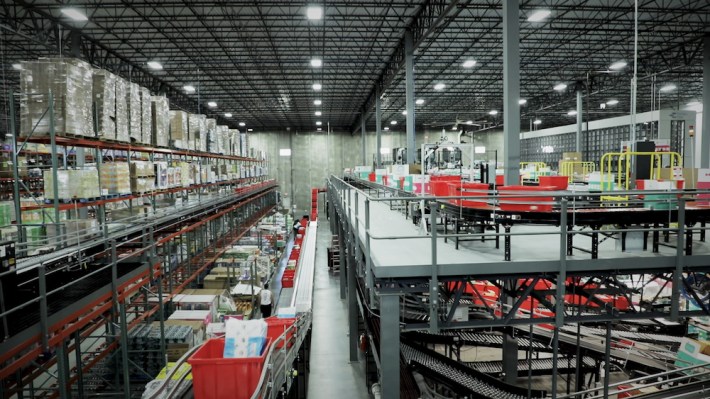The average US household with children spent nearly $170 per week on groceries in 2017, and the race is on among companies that want to be the recipient of that spending, with more traditional grocery providers going head to head with companies opting for a digital-first, e-commerce experience. In the latest development, a startup called Boxed — which focuses on bulk-sized groceries through an online-only storefront — said that it has raised $111 million in funding.
Boxed is not disclosing its valuation but a write up in the NYT notes it is now $600 million. Notably, the company was in talks earlier this year for a possible sale to Kroger for between $400 million and $500 million — a deal that the startup reportedly rejected. The company never commented on the negotiations, but notably its CFO parted ways with the startup not long after. That potentially gives you an idea of its pre-money valuation with this round.
Alpha Square Group, CDIB Capital, consumer technology investor Gabriel Naouri and existing investors also participated. Its long list of previous backers include American Express, Founders Fund, GGV, DST, Bessemer, Eniac Ventures and FJ Labs.
Competing specifically against the likes of Costco — which alongside Amazon and Target had also reportedly tried to buy Boxed — in targeting families and other consumers who like to look for bargains by shopping for food and other groceries in bulk sizes, Boxed said that this latest round of funding is led by a strategic backer: Aeon, the largest retailer in Japan in terms of sales.
The deal will not mean that Boxed is soon adding Japan to its footprint — currently the company says it only sells to the contiguous United States — but the two companies said that they will start with a “knowledge share” in areas like logistics, robotics, AI-driven data usage, and to help consult Aeon on putting more digital processes into its business.
“Our industry is constantly evolving. Our latest fundraising efforts will allow us to capitalize on those changes. We’ll also continue to expand our national footprint by focusing on reaching our core consumer in various key markets, to increase national brand awareness of Boxed,” Chieh Huang, co-founder and CEO, said in a statement.
In times past, grocery businesses, and food production in general, was largely focused around small businesses, but the last 75 years has seen a big swing to economies of scale, both in terms of the companies making what is sold and those who are selling it. That means a tricky playing field for smaller startups that are building grocery shop businesses from scratch, who have not only to contend with established brick-and-mortar chains, but also those new entrants, like Amazon, that are putting huge amounts of investment into their own efforts, leveraging their existing e-commerce and logistics empires to develop their own sizeable stakes in the market.
This latest funding brings the total raised by Boxed to $243 million, which is a sizeable amount of funding across startups, but ironically on the more modest side when it comes to e-commerce, which is capital intensive both because of the nature of the business (in Boxed’s case, it is buying in goods), as well as for marketing and customer acquisition, before you consider the technology that needs to underpin it.
In the case of Boxed, it sounds like the funding is largely aimed at developing the last of these categories, with a bit of the second category mixed it. It says it plans to “ramp up automation of facilities with hardware developed by Boxed’s in-house robotics team.” The company claims it is “one of the very few commerce companies in the world that writes its own software, runs its own fulfillment centers and builds its own automation robotics in-house.”
“The autonomous vehicles our robotics team has created will help support our rapid growth, enabling us to meet customer demand through increased efficiency, and put us at the forefront of fulfillment center technology,” said Huang in a statement. It’s also looking to expand in Chicago, it said.
